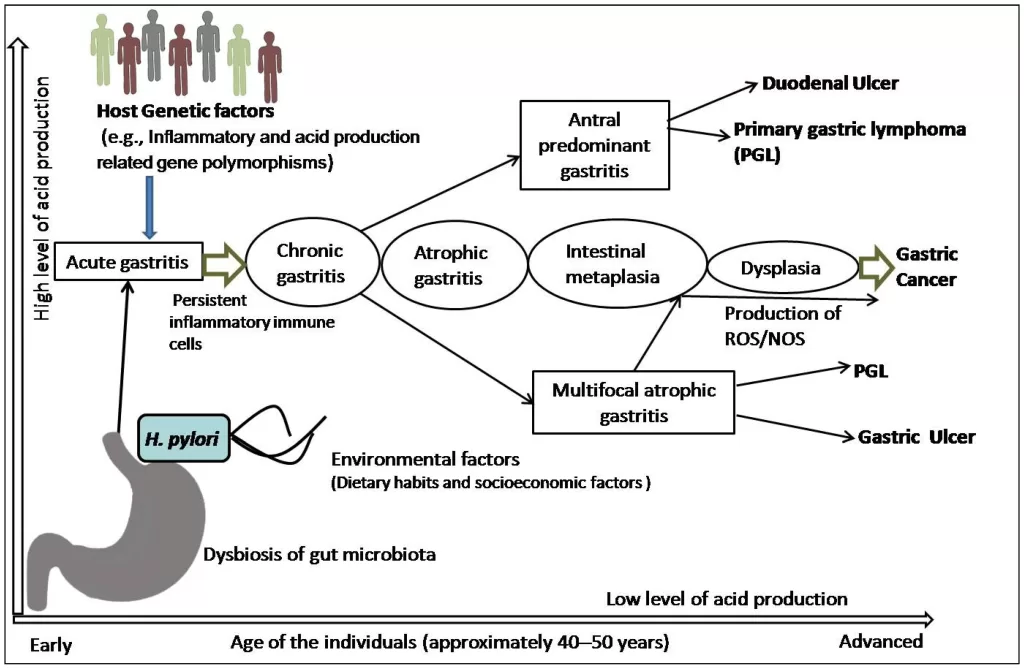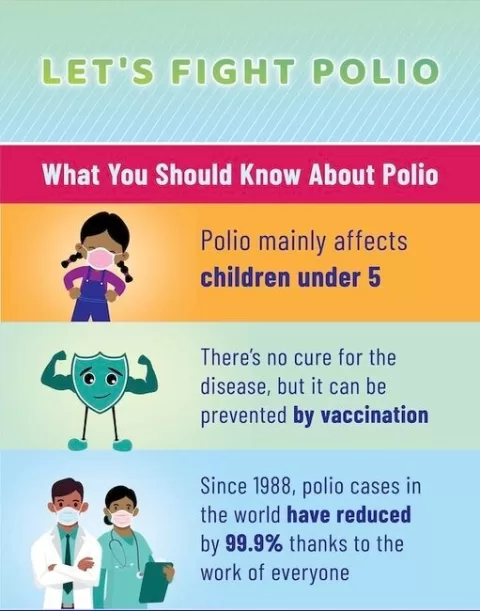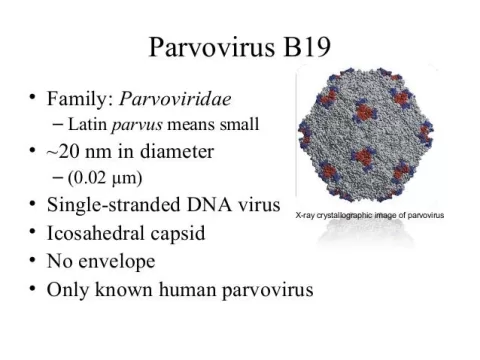Non-H. pylori Helicobacter infections, a diverse group of bacteria distinct from the well-known *H. pylori*, have critical implications for gastric health and can lead to various gastric diseases such as peptic ulcers and chronic gastritis. Recent research indicates that certain species, like *H. suis*, are responsible for a significant percentage of these infections, particularly among individuals with a history of pork offal ingestion. With a prevalence of 3% in the studied population, understanding the impact of these infections has become increasingly vital for health professionals. The relationship between NHPH infections and lifestyle factors, including pet ownership, sheds light on potential transmission routes of these Helicobacter species. As awareness of NHPH infections grows, it becomes essential to further explore their pathogenicity and the associated risks for gastric diseases.
Emerging forms of Helicobacter infections, often referred to as NHPH infections, represent a crucial area of study in gastroenterology, particularly given their links to serious gastric conditions. These non-*H. pylori* Helicobacter species, including *H. suis*, have been gaining attention for their role in gastric pathologies, which may be exacerbated by dietary patterns and exposure to certain animals. Research highlights that individuals consuming pork offal or owning cats may be at greater risk for contracting these infections. As the medical community seeks to identify and characterize Helicobacter species beyond *H. pylori*, understanding the nuances of NHPH infections will be paramount for effective diagnoses and treatment strategies.
Understanding Non-H. pylori Helicobacter Infections
Non-H. pylori Helicobacter (NHPH) infections are gaining attention in the medical community due to their potential role in various gastric diseases. Unlike the well-studied *Helicobacter pylori*, NHPH species such as *H. suis* have only recently been recognized as pathogens capable of causing significant health issues in humans. They possess a corkscrew-like morphology and are capable of surviving in the acidic environment of the stomach, leading to conditions such as chronic gastritis, peptic ulcers, and even gastric cancers. The awareness of NHPH and their impact on gastric health necessitates further research to establish clearer connections between these infections and dietary factors like pork consumption, which appears to increase the prevalence of these helicobacters in certain populations.
To effectively combat NHPH infections, healthcare providers must be educated about the signs and symptoms of these infections, particularly since symptoms can often be misattributed to other gastrointestinal disorders. The difficulty in isolating these bacteria from gastric biopsies makes accurate diagnosis challenging. Therefore, routine screening for NHPH during procedures like endoscopic examinations could aid in identifying cases that might otherwise go unresolved.
Emerging data from recent studies, including that conducted in Japan, indicate that NHPH infections are more prevalent in individuals with specific dietary patterns—particularly those who consume pork offal. In the aforementioned surveillance, 70% of NHPH infections identified were due to *H. suis*, highlighting its significance as a public health concern. Furthermore, the associations observed between pet ownership, particularly cats, and non-*H. suis* NHPH infections suggest that additional environmental and lifestyle factors could influence susceptibility to these unique pathogens. As research unfolds, identifying the transmission routes and potential reservoirs for NHPH will be crucial for effectively managing these infections.
The Role of Pork Offal in NHPH Infections
Pork offal consumption has been identified as a significant risk factor for Non-H. pylori Helicobacter infections, particularly *H. suis*. In regions where pork is a dietary staple, elevated rates of NHPH infections have been documented. The study in Japan underscored this connection, revealing that all *H. suis*-infected patients had a history of consuming pork offal. This dietary pattern may facilitate the transmission of *H. suis* as these bacteria are commonly found in the intestines of infected pigs, leading to contaminated food sources. The understanding of how dietary habits shape the microbiology of gastrointestinal health paves the way for preventative strategies when it comes to NHPH exposure.
Moreover, the ingestion of undercooked or contaminated pork offal could exacerbate the risks associated with NHPH infections. Given the increasing interest in gastronomic practices worldwide, it is vital that health education campaigns raise awareness of the potential dangers linked to consuming specific animal products. Awareness of proper cooking methods and food safety can help mitigate the risk of NHPH infections, ultimately protecting public health and reducing the burden of gastritis and other gastric diseases.
The Interaction between Helicobacter Species and Gastric Diseases
The interactions between various Helicobacter species and gastric diseases underscore the complexity of diagnosing and treating these infections. The study in Japan highlighted a notable prevalence of *H. suis* associated with marbled crack-like gastritis, a distinct endoscopic feature that could help differentiate NHPH infections from those caused by *H. pylori*. This characteristic emphasizes the need for healthcare practitioners to consider alternative Helicobacter species within differential diagnoses when dealing with unexplained gastric symptoms, thus enhancing the chances of appropriate treatment strategies. Notably, both *H. suis* and *H. pylori* share similar pathogenic traits but may necessitate different therapeutic approaches post diagnosis.
Furthermore, the presence of symptoms like chronic gastritis, which may result from multiple Helicobacter infections, raises questions regarding the need for comprehensive testing strategies. As the understanding of Helicobacter species evolves, discussions surrounding targeted diagnostics and tailored treatments become increasingly critical. By implementing advanced testing methods, particularly PCR and serologic evaluations, clinicians can better manage infections from less common Helicobacter species, ensuring timely interventions that could prevent severe complications.
Pet Ownership and Non-H. pylori Helicobacter Infections in Humans
Pet ownership, specifically of cats, has been identified as a noteworthy risk factor for non-H. pylori Helicobacter infections. The Japanese surveillance study revealed that a higher percentage of non-*H. suis* NHPH-infected patients owned cats compared to the wider patient population. This finding sparks further investigation into the potential role of domestic pets as reservoirs for Helicobacter species or as environmental contributors to infection transmission. Understanding these dynamics is essential for addressing public health concerns and formulating prevention strategies that encompass lifestyle choices along with dietary habits.
Cats, like various other animals, can harbor multiple microbial species, including some pathogenic bacteria that may pose risks to their human caretakers. Owners must be encouraged to uphold stringent hygiene practices and regular veterinary care to minimize the risk of disease transmission, including that of Helicobacter species. This highlights the broader responsibility pet owners have in maintaining not just their own health, but also the health and well-being of their pets.
Looking Ahead: Future Investigations and Public Health Strategies for NHPH Infections
As recognition of non-H. pylori Helicobacter infections continues to grow, future research must focus on understanding the epidemiology and potential reservoirs for these pathogens. Studies similar to the multicenter surveillance in Japan are valuable for developing a comprehensive understanding of the prevalence and clinical implications of NHPH. Additionally, future investigations should concentrate on expanding the demographic diversity of study populations to capture varying dietary habits and environmental factors that may influence the transmission of these bacteria.
Moreover, the data collected can inform public health initiatives aimed at raising awareness about NHPH infections and promoting preventative measures, such as dietary education regarding the risks associated with undercooked pork offal consumption. Potential strategies could also include community outreach programs focusing on hygiene practices related to pet ownership, thereby addressing another contributing factor to infection prevalence. Such multi-faceted approaches hold promise for not only mitigating NHPH infections but also fostering overall gastric health within communities.
Frequently Asked Questions
What are Non-H. pylori Helicobacter infections and their significance?
Non-H. pylori Helicobacter infections (NHPH infections) refer to a group of bacterial infections caused by Helicobacter species other than Helicobacter pylori, which can lead to various gastric diseases including peptic ulcers and gastritis. These infections are significant as they often go undiagnosed and can cause serious gastrointestinal complications.
How prevalent are Non-H. pylori Helicobacter infections in Japan?
In a recent study conducted in Japan, the prevalence of Non-H. pylori Helicobacter infections was found to be approximately 3%, with *H. suis* being the most common species identified among infected individuals. This highlights the need for increased awareness and screening for NHPH infections during medical checkups.
What dietary habits are associated with Non-H. pylori Helicobacter infections?
Consumption of pork offal has been identified as a significant dietary habit associated with Non-H. pylori Helicobacter infections, particularly *H. suis*. The majority of infected patients in studies report a history of consuming pork offal, which may increase the risk of infection with these Helicobacter species.
What symptoms are associated with Non-H. pylori Helicobacter infections?
Patients with Non-H. pylori Helicobacter infections often present with gastric symptoms such as chronic gastritis, abdominal pain, and in some cases, gastritis with marbled crack-like appearance observed during endoscopy. These symptoms can mimic those of H. pylori infections, making diagnosis challenging.
Is there a connection between pet ownership and Non-H. pylori Helicobacter infections?
Yes, there appears to be a connection between pet ownership and Non-H. pylori Helicobacter infections. In a study, a notable percentage of patients infected with non-*H. suis* NHPH species owned cats, suggesting that pet ownership may influence the risk of acquiring these Helicobacter infections.
How are Non-H. pylori Helicobacter infections diagnosed?
Non-H. pylori Helicobacter infections are diagnosed using techniques such as polymerase chain reaction (PCR) testing and serologic tests to identify the presence of Helicobacter species in intragastric fluid and serum samples collected during endoscopy.
Can Non-H. pylori Helicobacter infections be treated effectively?
While treatment protocols for Non-H. pylori Helicobacter infections are still being established, antibiotics and proton pump inhibitors may be used based on emerging evidence. However, specific treatment guidelines may vary depending on the Helicobacter species involved and should be determined by healthcare professionals.
What are the long-term implications of Non-H. pylori Helicobacter infections?
Long-term implications of Non-H. pylori Helicobacter infections include the potential development of serious gastric diseases such as gastric cancer and MALT lymphoma. Early detection and management of NHPH infections are crucial to mitigate these risks and improve patient outcomes.
| Key Points |
|---|
| A study in Japan evaluated the prevalence of Non–H. pylori Helicobacter (NHPH) infections. |
| 673 patients were enrolled during annual medical checkups from May to August 2022. |
| The overall prevalence of NHPH was found to be 3%. |
| 70% of the infected patients had *H. suis*, mostly affecting men with pork offal consumption. |
| Endoscopic evaluation showed that 93% of *H. suis*-infected patients exhibited marbled crack-like gastritis. |
| Risk factors included pork offal ingestion and pet cat ownership. |
Summary
Non-H. pylori Helicobacter infections have been identified as a significant health concern in Japan, with a notable prevalence rate of 3% among patients undergoing medical checkups. The study highlights the correlation between these infections and specific dietary habits, particularly the consumption of pork offal, as well as pet ownership, especially among cat owners. The distinct endoscopic findings associated with *H. suis* infections indicate the need for a heightened awareness and potential refinement of diagnostic and treatment approaches for NHPH infections in clinical settings.
The content provided on this blog (e.g., symptom descriptions, health tips, or general advice) is for informational purposes only and is not a substitute for professional medical advice, diagnosis, or treatment. Always seek the guidance of your physician or other qualified healthcare provider with any questions you may have regarding a medical condition. Never disregard professional medical advice or delay seeking it because of something you have read on this website. If you believe you may have a medical emergency, call your doctor or emergency services immediately. Reliance on any information provided by this blog is solely at your own risk.








